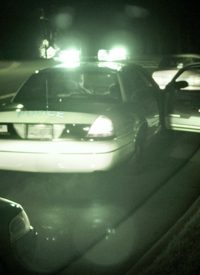
Government owned much land in those early days, so the selling of land was an easy way to raise money. Tariffs, taxes imposed upon the import of goods, was the principal source of revenue for the federal government. Poll taxes, which were a form of “head tax,” were also common. (One reason that the 3/5 compromise, which counted slaves and Indians by that smaller ratio, appealed to the South was that, although representation in Congress was diminished, so was the tax owed to the federal government.)
User fees are a logical way to raise revenue. When we pay our water bill, our garbage bill, and our other local government utility bills, those bills are primarily based upon our usage of government services (although the federal government has now mandated additional fees that local governments must pass on to consumers). These local user fees also have the advantage of allowing the citizen to choose alternatives. Homeowners on the outskirts of towns can drill wells for water. Small generators can produce electric power. The disposal of waste can be limited by patterns of usage or disposed of outside municipal limits. Market forces, although imperfect whenever government is involved, help keep user costs roughly proportional to value.
Another function of government is law enforcement and justice. Because the penalty for committing a crime is often not imprisonment but rather the payment of a fine (or other similar costs), police and judges have long had a vested interest in assessing fines on citizens. The notorious “speed traps” that have plagued motorists traveling across country are a good example of the inherent conflicts in raising revenue by fines. Although small towns have a legitimate interest in making sure that drivers do not race unsafely through their city limits, when police officers and judges depend upon traffic violations to pay their salaries, then the objectivity that is so important in honest law enforcement and justice is compromised.
Ultimately those forms of small-town government revenue create more problems than they solve for the communities. Drivers do not purchase gas or eat meals in speed traps, if they can avoid it. The motels they choose to sleep in overnight are elsewhere, and the tourist gifts and trinkets go unsold in speed traps. Businesses view speed traps as bad places to locate, not because of the danger of getting a ticket — police in speed traps often ignore local citizens and focus on travelers — but because speed traps imply systems of justice that are unfair and harsh.
State governments, facing terrifying budgetary shortfalls, are looking for any way to reduce the budget problems. Writing citations for traffic offenses is a very old tool to raise revenue without raising taxes. South Carolina is debating a change in the law that would empower traffic officers to impose a $150 fine on drivers who were less than 10 miles over the speed limit. Currently the law allows a fine of $25 or less for this low-speed traffic offense. This proposal appears to have nothing to do with traffic safety. It does not have to do with special situations, such as speeding in a school zone while children are around, or driving while talking on a cellphone, or, of course, the historical problem of driving under the influence of alcohol or drugs. Making money seems the only real reason for the change.
There is an insidious hole in the new law as well. Although the fine will be six times or more greater than the old fine for the same offense, the offense would not have to be reported to the South Carolina Department of Motor Vehicles. The deliberate intention is to prevent the insurance premiums paid by South Carolinians from jumping because of these low-speed traffic violations. Stated another way, the bill would keep from auto insurers information that is otherwise a matter of public record. Now traffic offenses are automatically reported, and private insurance companies, based upon this data, develop an appropriate rate of insurance for the particular driver involved. Under the proposed law, drivers would get the benefit of their low-speed traffic offense not being reported to their insurance company and would not have to pay higher insurance rates.
Rep. Todd Rutherford, a Democratic cosponsor of the bill, said that the measure was not intended to close the deficit but rather provide more protection for motorists: "My biggest thing is motorists should have an option and law enforcement should have an option…. If it doesn’t get reported, most people don’t mind paying [the higher fine.]" Howard Duvall, who was for a long time the director of the Municipal Association of South Carolina, observed that in the last few decades the state began tacking on a host of fees directed to certain programs, and he described those: "It was both an attempt to dodge insurance points and to dodge the court fees imposed by the state."
Private insurance companies, of course, compete and respond to government impositions. Because insurance companies have a vested interest in an actuarially sound determination of the right insurance rate, they would have to recover lost profits caused by denying them valid offense information by raising the insurance costs (either in higher rates or lower coverage) for all South Carolinians.
Perhaps more troubling for citizens of the state would be the perception that the government and its citizens could “trick” companies and so marginally benefit voters and bureaucrats. Business does not work that way. Insurance companies, like other businesses, calculate risks in making decisions. When state legislators try to hide information, the only consequence can be that the risk, and so the cost, of business operations rise. Ultimately, everyone suffers.



